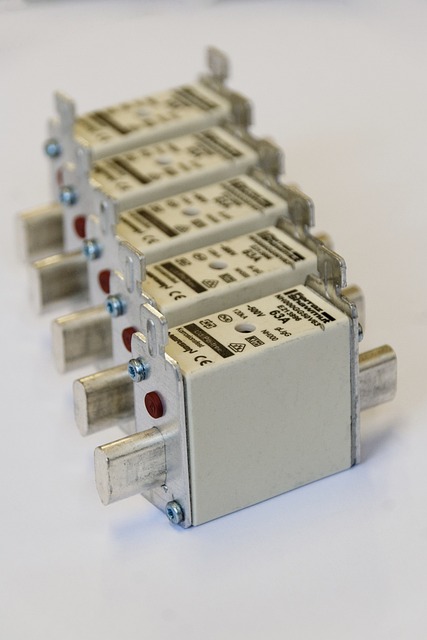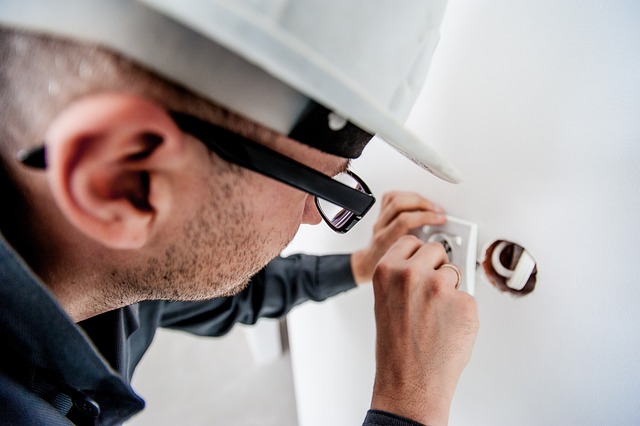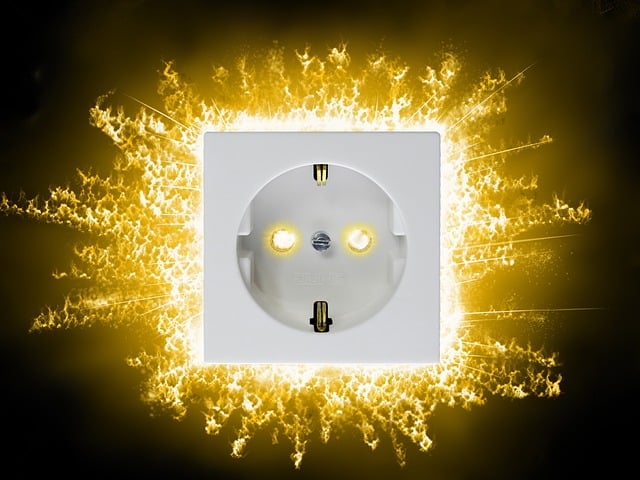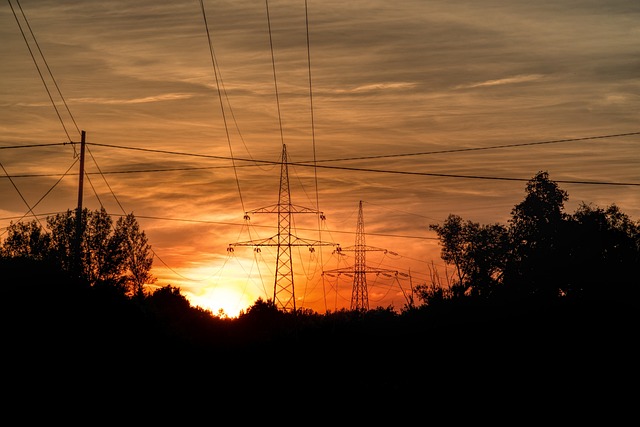Energy Audits Explained: Enhancing Home Efficiency with Expert Electrician Insights
An energy audit by a certified electrician is essential for homeowners or building managers looking to enhance energy efficiency and cut utility costs. This professional assessment uses specialized tools to evaluate the home's current energy usage, considering factors like insulation, HVAC per…….

An energy audit by a certified electrician is essential for homeowners or building managers looking to enhance energy efficiency and cut utility costs. This professional assessment uses specialized tools to evaluate the home's current energy usage, considering factors like insulation, HVAC performance, lighting, appliances, and structural integrity. The electrician identifies where energy is being wasted and provides a detailed report with specific recommendations for improvements, ranging from DIY fixes like air sealing to significant upgrades such as high-efficiency HVAC systems or solar panel installations. These changes not only benefit the environment but also lead to a more comfortable living space and substantial long-term savings. The electrician's expertise is crucial in navigating energy codes and standards, ensuring that the suggested measures are both practical and cost-effective. For both residential and commercial settings, this service is a key step in sustainable energy management and compliance with regulations.
Exploring the intersection of home efficiency and energy management, our article delves into the transformative process of energy audits and the pivotal role certified electricians play in this realm. Homeowners will gain a clear understanding of how these audits pinpoint opportunities for energy savings, leading to tailored recommendations that not only optimize home comfort but also significantly reduce utility bills. We’ll navigate through each step of an energy audit, highlighting the advanced technologies involved and the comprehensive assessment methods used to evaluate your home’s energy efficiency. Furthermore, we’ll explore the long-term benefits of implementing these expert recommendations, including insights into available government incentives that can make energy-efficient upgrades even more cost-effective. Whether you’re a homeowner looking to enhance your living space or an electrician aiming to expand your services, this guide will illuminate the path to sustainable living and energy savings.
- Understanding Energy Audits: A Comprehensive Guide for Homeowners
- The Role of Certified Electricians in Conducting Energy Audits
- Step-by-Step Process of a Typical Energy Audit
Understanding Energy Audits: A Comprehensive Guide for Homeowners

An energy audit is a detailed assessment of a home’s energy consumption and efficiency, identifying where a home is losing energy and pinpointing opportunities for improvement. This process is invaluable for homeowners aiming to reduce their utility bills and environmental footprint. A certified electrician plays a pivotal role in conducting these audits. They utilize specialized tools and techniques to evaluate the energy flow within a residence, examining everything from insulation quality to HVAC performance. The audit includes a comprehensive review of the home’s systems, lighting, appliances, and building envelope, identifying areas where energy is being wasted. Post-audit, the electrician provides a detailed report with recommendations on cost-effective measures to enhance energy efficiency. These may range from simple fixes like sealing leaky ducts or replacing old light bulbs with LEDs, to more significant investments such as upgrading heating and cooling systems or installing solar panels. By following the electrician’s tailored advice, homeowners can make informed decisions to optimize their home’s energy use, leading to a more comfortable living environment and substantial savings over time.
The Role of Certified Electricians in Conducting Energy Audits

Certified electricians play a pivotal role in conducting energy audits, which are essential for identifying areas where energy use can be optimized in both residential and commercial settings. These professionals have specialized knowledge of electrical systems, making them uniquely qualified to assess the efficiency and safety of current installations. During an energy audit, certified electricians analyze energy flows, inspecting equipment and systems to detect inefficiencies or potential hazards. Their expertise enables them to pinpoint where improvements can be made to reduce energy consumption, enhance system performance, and lower utility bills. They also provide recommendations on the installation of energy-efficient lighting, advanced power strips, smart thermostats, and other energy-saving technologies. By doing so, they not only contribute to cost savings for clients but also support sustainable energy practices that benefit the environment. Their meticulous documentation and reporting post-audit serve as a roadmap for implementing changes, ensuring that the recommendations are feasible and clearly understood by all parties involved. This professional guidance is invaluable for homeowners and businesses aiming to make informed decisions about their energy use and for adhering to evolving energy regulations and standards.
Step-by-Step Process of a Typical Energy Audit

An energy audit is a comprehensive evaluation of a building’s energy consumption, identifying areas where energy use can be optimized to increase efficiency and reduce costs. A certified electrician typically conducts this assessment, following a systematic step-by-step process. The initial phase involves gathering data on the building’s current energy usage through utility bills, meter readings, and occupancy patterns. This data serves as a baseline for comparison after improvements are made.
Next, the electrician performs a physical inspection of the property, examining heating and cooling systems, lighting fixtures, insulation levels, windows, and doors. They look for air leaks, inefficient appliances, and other energy-wasting features. Using specialized equipment such as blower doors, infrared cameras, and thermal imaging tools, they can detect hidden issues like poor insulation or air duct leakage that affect energy performance. The electrician then analyzes the collected data to pinpoint where the most significant energy losses are occurring. This analysis leads to a detailed report with recommendations for improvements, which may include upgrading lighting systems to LED technology, sealing ductwork, enhancing insulation, and installing more efficient HVAC systems. These enhancements not only reduce energy consumption but also lower utility bills and improve the overall comfort of the building’s occupants.
homeowners looking to enhance their home’s energy efficiency and reduce utility costs can significantly benefit from professional energy audits conducted by certified electricians. This article has demystified the process of an energy audit, outlining its importance, the detailed steps involved, and the expertise required to perform a thorough assessment. By leveraging the insights provided by these experts, homeowners can identify areas for improvement and implement cost-effective measures that contribute to both environmental sustainability and economic savings. Engaging with a certified electrician not only ensures accurate assessments but also facilitates informed decision-making for sustainable living practices.







